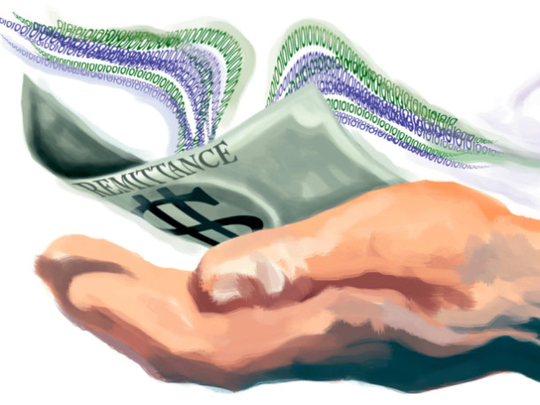
No less than $15.8 billion (about Dh58 billion) was sent from Pakistani expats all around the globe to Pakistan in the country’s last fiscal year, which runs from July to June, figures released by the State Bank of Pakistan showed last month. This is a 14 per cent increase on the previous year.
Of the fund inflows, most came from Saudi Arabia, the UAE and the US, the rest from other Gulf and Middle East nations as well as from Europe, Canada, Australia and Japan.
Almost 80 per cent of remittances to Pakistan are from the Gulf and Middle East from expatriates to support their families. “Pakistan accounts for 27 per cent of LuLu Exchange’s remittances,” says Adeeb Ahamed, CEO, LuLu International Exchange.
“Remittances to Pakistan from the UAE through LuLu Exchange have been on a steady incline. The remittance volume has grown by 8 per cent year-on-year, while the number of remittances has increased by 18 per cent in the last two quarters.”
Being one of the major expat communities in the UAE, business with Pakistanis is also strong at UAE Exchange. “We share a very distinctive bond with the Pakistani expatriate community worldwide. In 2013, [Pakistanis] remitted $1.56 billion through UAE Exchange, of which $735 million was from the UAE alone,” Promoth Manghat, Vice-President — Global Operations, UAE Exchange.
Sending money home
Pakistan’s exports reached $25.2 billion last year – mainly textiles, agricultural products, chemicals and cement - while imports were $45.2 billion, mostly for oil and gas, machines, electronics, vehicles and steel. GDP per capita remains at around $2,500, which places it among the poorer third of nations globally.
Pakistan does indeed need foreign exchange inflows to support its otherwise slowly developing economy. The nation, which although technically has a the potential to become one of the world’s largest economies due to its size and its resources and its 180-million-population, is far from being the economic powerhouse that it could be.
Iftikhar Babar, Managing Director, Overseas Pakistani Foundation, an organisation that supports expats and their families, says remittances have become “the main source of economic growth”. It is instrumental in poverty alleviation.
Informal channels
While cash remittances are a big help, particularly for impoverished and low-income families, the funds converted to the Pakistan rupee quickly lose their purchasing power due to inflation — the official inflation rate as of July was 8.8 per cent annually, and unless Pakistani expats send more remittances, it remains hard for the families to improve their living standards or to really escape poverty.
The Pakistan Remittances Initiatives encourage people to use official channels, which have additional fees. This prompts many to use informal money transfer channels such as hawala or hundi.
The government is aware of the situation and concedes that remittances must be higher than the official figure, but also alleges that much of the remittances that come through alternative channels “are not widely productive for the economy”, according to Finance Minister Ishaq Dar.


